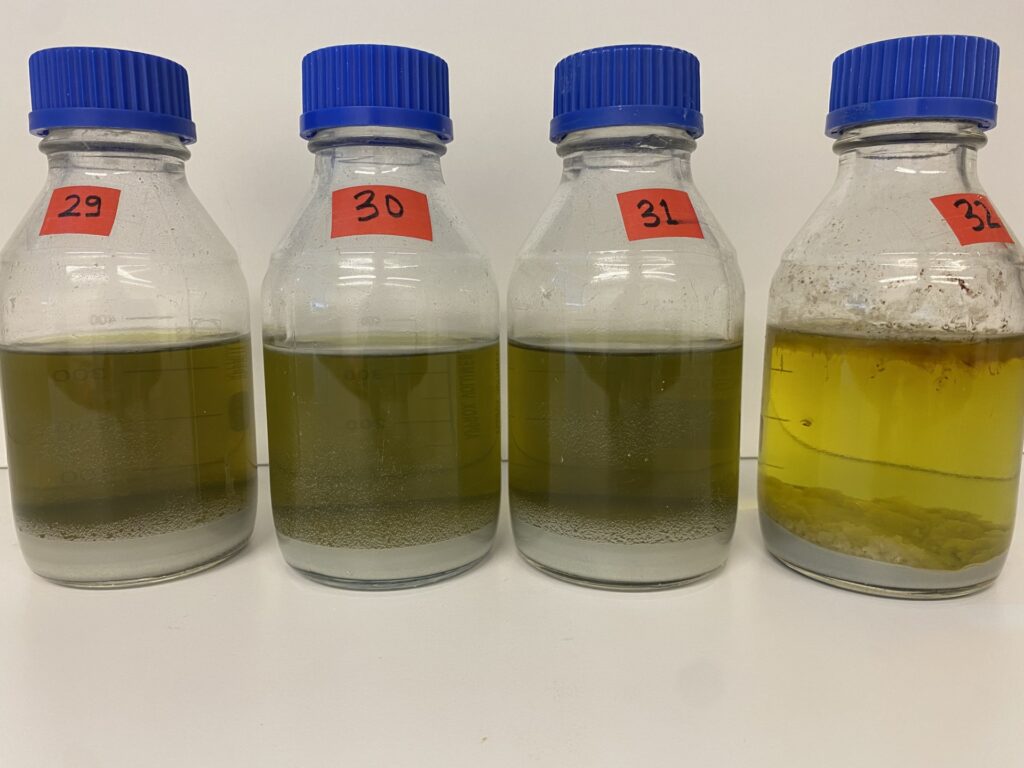As part of the larger BAM! consortium, Uppsala University has conducted batch and flow-through experiments in an effort to better understand the batch reactor setups developed by Wageningen University. Through these experiments, we have had the opportunity to study the detailed processes of bacterial and fungal-enhanced weathering.
Our results show that fungal and bacterial species already present within the rock material at the start of the experiment appear to be more effective at enhancing alteration than externally introduced species, even when the added microorganisms are known for their rock weathering capabilities. Another key finding is that introducing new microorganisms into a reactor requires either prior sterilization of the system or the addition of a very high cell density in order to outcompete the indigenous microbial community.
In one of our latest experimental setups, we isolated a new fungal species that has proven effective in enhancing the weathering of dunite by up to 130%. Notably, this species is acid-tolerant, which opens up the possibility for enhanced weathering under acidic conditions. Such conditions can increase not only the abiotic dissolution of the rock but also the biological enhancement. Together, these two factors offer the potential for a long-term, low-cost, and low-maintenance enhanced rock weathering system.

